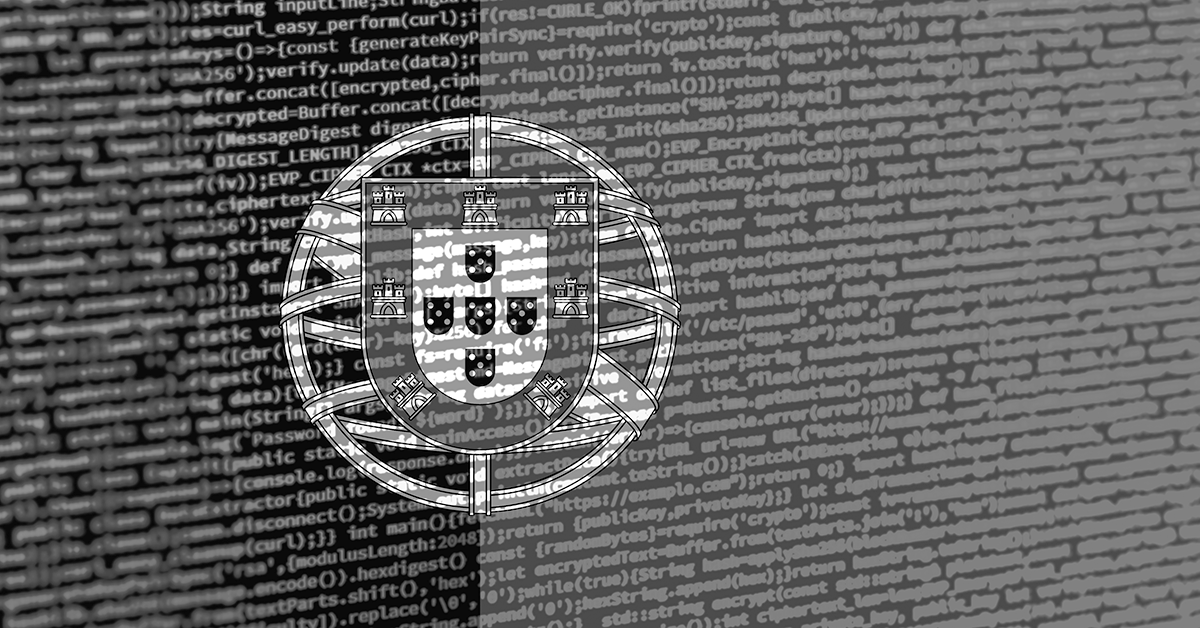The digital world has become a battleground of code and consequence. Cybersecurity no longer hides behind the IT desk. It stands center stage, an operational, legal, and existential concern. In Portugal, as across Europe, the rules are tightening, and the margin for error is shrinking. For global businesses, understanding Portugal’s cybersecurity laws is not a footnote. It’s the headline.
The Core of Compliance
Portugal has put its shoulder into the cybersecurity grind. The National Cybersecurity Strategy for 2019 to 2023 mapped the journey, resilience, innovation, security, a triad of intent in an age of relentless digital exposure.
Several key legal instruments drive this effort:
Law No. 46/2018: Portugal’s foundational cybersecurity law, built on the first NIS Directive.
Decree-Law No. 20/2022: Guards the gates of critical infrastructure.
Decree-Law No. 65/2021: Outlines what to do, how to do it, and how fast when things go wrong.
NIS 2 Directive (EU 2022/2555): Expands the net. It pulls essential and important entities into scope irrespective of the size.
DORA (EU 2022/2554): For financial firms, it’s not just about security. It’s operational survival.
The message is clear. Portugal doesn’t just want strong laws, it wants durable ones. Laws that can outlast the next threat, the next breach, the next blackout. This legal scaffolding isn’t just paperwork, but can be likened to the nation’s digital armor.
Who Watches the Network
Enter the CNCS, Portugal’s National Cybersecurity Centre. Tucked inside the National Security Office, it’s the nation’s frontline force. Its mission is to enable a safer cyberspace, using strategy, regulation, and enforcement as its tools.
The CNCS builds capacity. It trains, funds, certifies. It detects early, responds fast, and legislates when necessary. When needed, it acts. But more often, it guides, fostering a culture of preparation, not punishment.
So far, it’s taken a hand-on-the-shoulder approach. Educate, not just regulate, and prevent, not just prosecute. Compliance is the goal, but awareness is the path. This is cybersecurity with a human touch, rigorous, yet grounded in practical reality.
Tremors Beneath the Surface (2024–2025)
All is not calm. Portugal, at present, lacks a formal cybersecurity strategy for the years ahead. The CNCS promises a new roadmap. But deadlines have passed, and questions linger.
The NIS 2 Directive should have been transposed by 18 October 2024. It wasn’t. Political turbulence scuttled the draft law. Now, stakeholders wait as the legislative wheel turns. The government, empowered under Proposal of Law XXIV/2024, held a public consultation from November to January. Then came March 2025, and a loss of government confidence.
Still, the process moves. A new RJC draft (Regime Jurídico do Ciberespaço) is under inter-ministerial review. Eyes are on Q3 2025 for approval. Legal force is expected by 1 March 2026. Late, but better than never.
Industry, however, doesn’t pause for politics. Security teams are already adapting, and risk officers are revising policies. The best organizations don’t wait for a mandate; they move ahead of it.
Europe’s Bigger Picture
Portugal doesn’t legislate in a vacuum. It dances to the beat of a European drum. Cybersecurity, after all, knows no borders. The EU’s playbook guides policy. Shared frameworks build trust, attract investment, and tighten defenses.
This alignment matters because it reassures partners, and it signals ambition. It makes Portugal a serious player in digital security, not simply a passive observer on the sidelines. And for businesses, it offers continuity, knowing that what applies in Lisbon will echo in Frankfurt, Paris, and beyond.
What Businesses Must Do Now
For companies operating in or connected to Portugal, complacency is not cheap, but action is necessary. Here is a good place to start:
Track the Legal Horizon: Follow the NIS 2 transposition and any fresh national strategies. The ground is moving.
Know Your Infrastructure: If you’re deemed critical, Decree-Law No. 20/2022 applies. The obligations are non-negotiable.
Harden Your Defenses: Risk management isn’t a paper exercise. Conduct regular assessments. Build and test response plans.
Prepare to Report: Under Decree-Law No. 65/2021, time matters. Incidents must be reported quickly and clearly.
Follow DORA if it’s Yours: Financial institutions must meet DORA standards. Compliance cannot be seen as optional and must become part of the operational DNA.
Train Relentlessly: Employees are your first firewall. Keep them sharp. Cybersecurity isn’t static, and neither is threat awareness.
Spend Where It Counts: Allocate resources. Time. Talent. Technology. Security must be funded to be effective.
Delay may be tempting, but it is too dangerous. The law is evolving, and the threat is already here. And the cost of getting caught off guard isn’t just falling foul of regulators; it's loss of reputation and customer trust.
Resilience Over Regulation
Portugal’s cyber ambitions are clear. They echo Europe’s larger mission: digital sovereignty, shared security, strategic alignment. The CNCS, the laws, the pending reforms, are all scaffolding, not safety nets.
For global firms, now is the time to engage. Not at some point in the near future, or once the final regulation is published. Now. Because resilience doesn’t begin with a government signature. It begins with readiness.
In the end, cybersecurity is more than compliance. It’s trust. It’s continuity. It’s the quiet assurance that when (no, not if) the attack comes, your business stands ready, not exposed.
Compliance Is Not Security, But It's a Start
Mature beyond checkbox compliance. Fortra® helps organizations around the world follow regulatory compliance mandates and align with security frameworks to strengthen their security posture.

